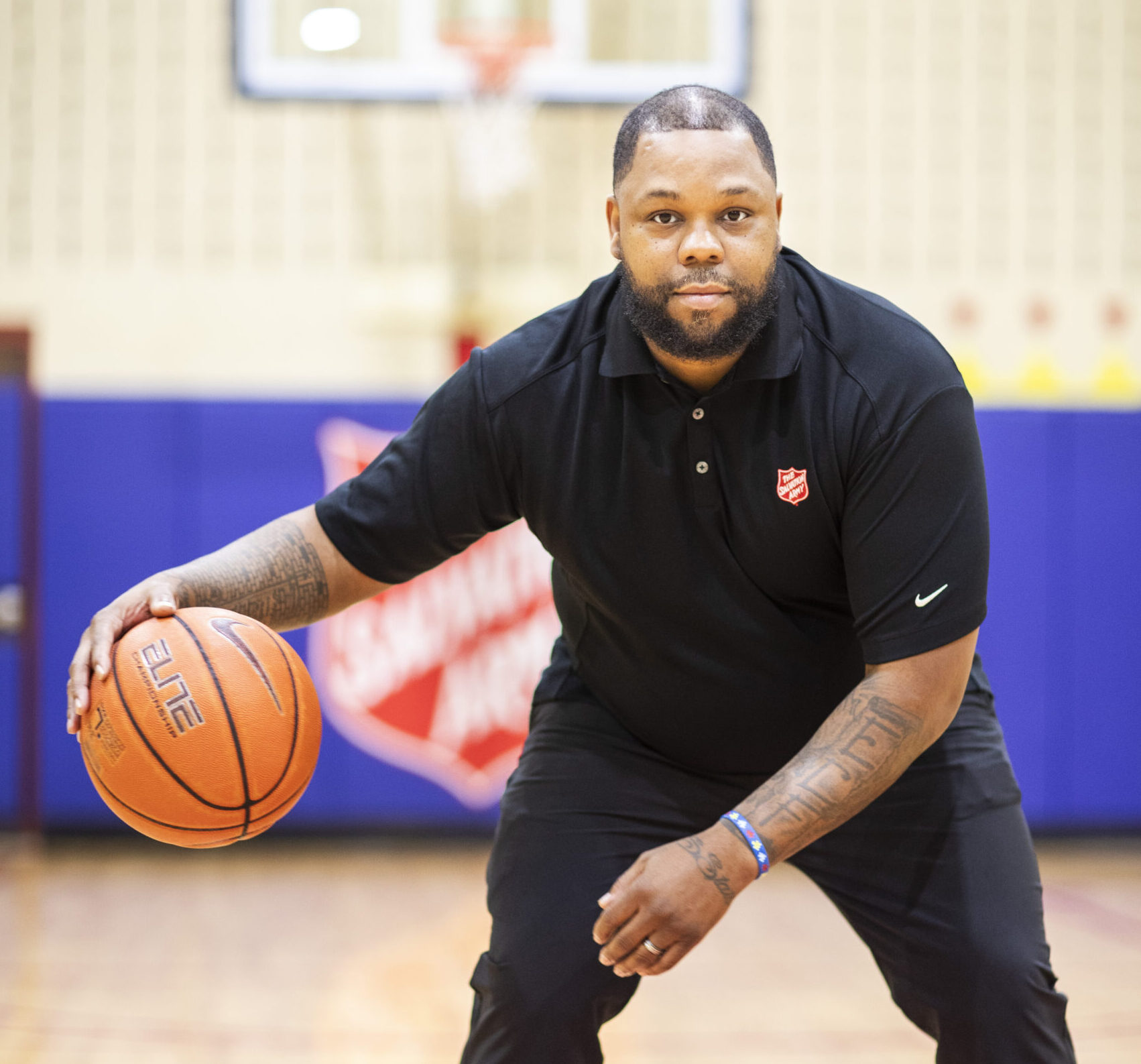Muhammad Oliver
by Hugo Bravo

“I reconnect with people I went to school with. They ask if I know where they can get help paying a light bill, or a place for their children to study,” says Muhammad Oliver. “Being able to provide help to those who need it is like having a superpower.”
Forks in the road of life can come in different ways. They can be choices, opportunities, or decisions. For Muhammad Oliver, basketball coordinator for The Salvation Army Newark Services in New Jersey, those forks appeared as people who were crucial in making him the person he is today.
“The first ‘fork in the road’ was my great-great-aunt, who took me in to live with her in 1989. My mother and father couldn’t raise me properly due to their own personal problems, and my auntie felt that it was her duty to keep the family together and away from foster care,” says Muhammad. “She was in her 60s, but through her, I met older cousins and uncles who became mentors and father figures. They showed me how a man should raise kids, even if those kids weren’t his.”
Ten years ago, Muhammad was introduced to The Salvation Army by a friend who was trying to start a volunteer basketball program at the Newark Westside Corps. “I grew up in this area and knew it was full of kids who played basketball, so I found it strange that enrollment was so low.
“We changed the program to ‘Books and Basketball,’ where kids could get help with their homework after school and play basketball. The Army has been in Newark for years, but many people are still unaware of the services it can provide. That is, until we get them in the door,” Muhammad says.
Oliver had a family of his own and was always looking for something that could keep his 10-year-old entertained and out of trouble. He knew that other parents in the community would want the same.
“We went from 10 kids coming to the Books and Basketball program to 50. That was more of what I expected to see,” he says. “When kids realized that they could also learn to play basketball at The Salvation Army, the numbers went up even more.”
One of the young men who attended the program was a 14-year-old Nigerian teen named Clifford Omoruyi. He had come to the United States through arrangements made by his brother Alfred, who was Muhammad’s friend. Muhammad was only supposed to help with the travel process, but he also became Clifford’s legal guardian. Though Clifford spoke English and was a promising student, Muhammad and The Salvation Army helped him develop a routine and discipline through the basketball and after-school programs, where Cliff tutored and played against other teens.
“I wanted Cliff to know that even though he wasn’t blood related, he became family when he stepped into our home,” Muhammad says. “In turn, he had to understand that being the oldest child there, my own children would be looking up to him. Many people were making sacrifices just for him.”
Omoruyi is now a starter for the Rutgers University Scarlet Knights and one of the most sought-after college basketball stars in the country. His is just one of the many lives that Muhammad has influenced at The Salvation Army. The young people he’s mentored have grown up to become upstanding members of the community, finding success in sports, launching careers, and even coming back to volunteer at the Newark Westside Corps. Muhammad hopes that he can continue to be a fork in the road for others, just as they have been for him.
“I think a lot about how the founder of The Salvation Army, William Booth, would go to the dirtiest bars, find the people who were in the worst situations, and save them. In a way, I see that as my story too. I was saved from a horrible situation by someone who cared about me,” Muhammad says.
“My duty now is to let everyone know about the services that The Salvation Army has to offer, whether it’s food, social services, academics, or just after-school activities for kids,” he says. “And what better person to introduce them to the Army than someone from their own community?”

